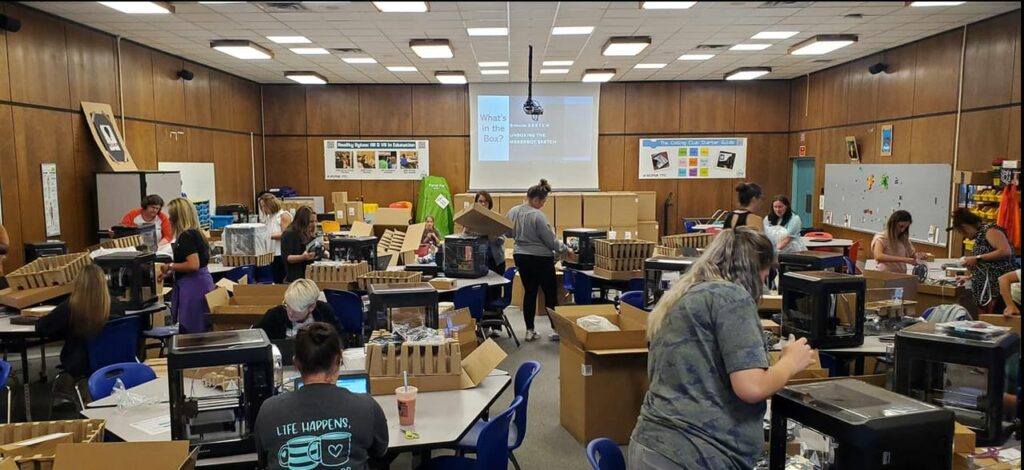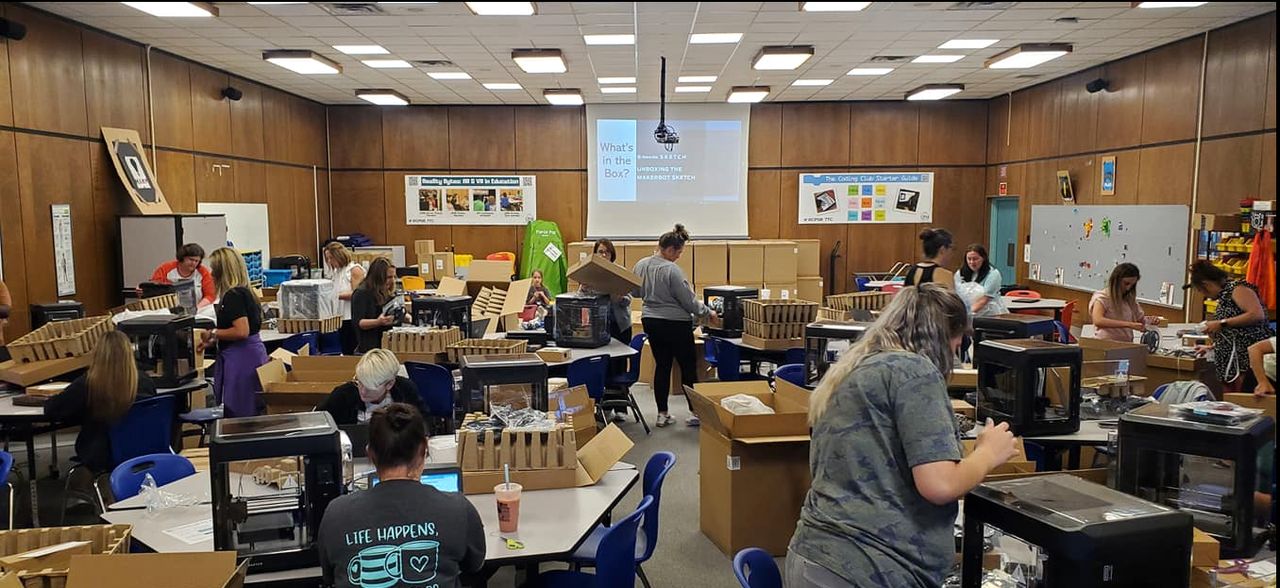
MakerBot announced a significant donation of 3D printing gear to a series of nonprofits.
The New York-based company is perhaps the oldest of the 3D printing companies that emerged after the expiry of key 3D printing patents in 2008. While they began focusing on the DIY / hobby market, over time they shifted into education and then professional applications.
The company provides significant capabilities to the education market, where students learn basic concepts of digital manufacturing, 3D design and part production. MakerBot has long sold equipment to schools for this purpose, and has leveraged their Thingiverse asset in their comprehensive educational services and cloud-based lesson plans.
The news is that MakerBot has donated a series of 3D printers, including their flagship product, the METHOD X, as well as the educational SKETCH system and Replication+ to several nonprofit organizations across the United States that serve low-income communities.
The specific institutions involved include:
- Si Se Puede Foundation (Arizona), which provides access to advanced STEM learning to students that can’t get that from their normal schools
- Kihei Elementary School (Hawaii) will use the equipment to enrich the educational programs of their students
- Manatee Children’s Services, Inc. (Florida) addresses the educational needs of children in foster care that can benefit from learning the technology
- HATCH Workshop (California) will train library visitors and makerspace members in 3D printing concepts and operations
- The Steam Foundation (California) provides virtual workshops for K-12 students to learn STEAM concepts, now including 3D printing
Manatee Children’s Services’ BRIC Therapist Derek Beaulieu said:
“In our shelters, the kids have a lot of downtime. With 3D printing, children can make 3D objects come to life. The time they spend concentrating and deep in thought working on their creations allow them to escape the trauma they have experienced. 3D printing actually helps soothe the amygdule in the brain stem. The amygdule is the part of the brain that senses fear and, for many of the kids we have, the trauma they experience has the amygdule inflamed. The designing of a 3D object allows the children to concentrate on what they are making, which in turn helps them to relax and forget about other things. Printing the objects and bringing their creations to live give them a sense of self-esteem that they are lacking. At MCS, we are grateful to MakerBot for allowing us to introduce the hobby of 3D printing into these kids’ lives and providing them with a hobby that will give them some relief from their anxieties.”
3D printing for children is not just about learning how to print. As you can see there are multiple other angles of the technology that can provide tremendous benefit. I’m quite certain that many of the participants exposed to the technology as a result of MakerBot’s donation will have positive, life-changing experiences.
Just watch for them in ten to twenty years.
Via MakerBot

